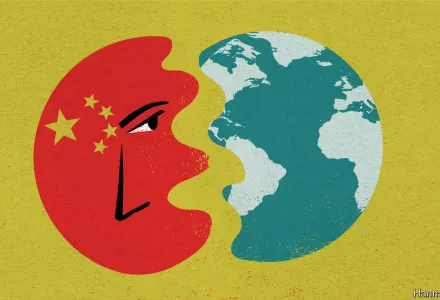
China is often called a country in thrall to nationalism. The reality is more complex than that, and more cynical. For proof, look at the remarkable calm (so far, at least) that has reigned since June 15th, when Chinese and Indian troops fought their deadliest border skirmish in almost half a century. On a sweltering afternoon in Beijing, nearly three days after that Himalayan clash, a couple of bored-looking police were the only sign of extra security around India’s embassy.
China’s state-run media had by then issued terse reports of a violent border incident. Lots of internet users reposted news items about dead Indian soldiers. There was only limited grumbling about the failure of official Chinese sources to reveal details of casualties suffered by the Chinese army. Indeed, some netizens treated the story as a joke, mocking India’s soldiers as feeble.
The full text of this publication is available via The Economist.


